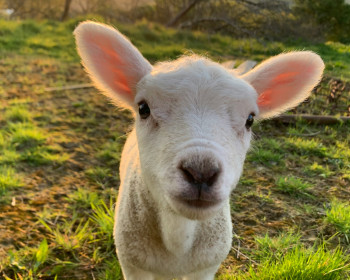Networking in Animal Law: A Law Student’s Perspective
Open gallery

“It’s not what you know, it’s who you know…”
While this old adage is not entirely true, developing a network of people who can support you in your legal career is extremely important. If you’re like me though, the slightest mention of the word “networking” will fill you with terror and cause your body to tense up. Many law students—as well as practicing lawyers—are reluctant to network for an array of reasons. These reasons may include that networking can be time-consuming, perceived as asking for special favors, uncomfortable, it may produce anxiety, and the list goes on. But networking doesn’t have to be scary.
There is immense value in networking, including for those pursuing a career in animal law. And, people tell me that it can even be fun! This year’s Animal Law Week features two networking focused events for animal law students. This blog provides some tips, from the perspective of a law student, on the value of networking for future animal lawyers. It also includes advice from an expert: Joyce Tischler, Professor of Practice at the Center for Animal Law Studies at Lewis & Clark Law School, who blazed the trail that created the field of animal law 40 years ago. That required a lot of networking!
Basics First: What Is Networking?
Networking is about getting to know people, usually with similar interests, and building a connection, or even a relationship, that may be helpful for professional development. Networking can be—but doesn’t have to be—a large social event. It can be almost anything you can imagine. We network every day without even realizing it sometimes. Our daily interactions with those around us can lead to networking opportunities, if we take time to notice them. Networking might also be: “cold calls,” meeting up for coffee, scheduling a Zoom meeting, volunteering on a committee, doing pro bono work, making connections with peers or professors, or writing an article for a law-related newsletter. The list goes on.
Why Network?
There is no more effective way to make people aware of who you are and what you do than to network. Professor Tischler says networking is “an essential step in the process of finding your dream job in animal law.” Networking is also an efficient way to find opportunities before they’re advertised (if they’re advertised at all). Therefore, it is immensely valuable for animal law students to start building their network during law school (and continue that work throughout their careers).
According to LinkedIn, 79% of professionals agree that networking is valuable for career progression. While sometimes viewed as a one-sided activity, networking is beneficial for all parties involved. When you focus on meeting and helping others, you will find that it leads to intangible benefits, not only in the production of business, but in building lasting and rewarding relationships.
Networking doesn’t end when you find that dream job. It is equally important for long-term success as an animal lawyer, whether one practices animal law full-time or simply wants to devote some of their practice to animal protection work. The relationships built through networking can become business opportunities, connections with others, a chance to connect with others who have handled the same legal issue before, and even lasting friendships. Here, Professor Tischler applies the “Six Degrees of Kevin Bacon” principle and she says it is especially true in animal law: “By networking, you may meet someone who knows someone who is the key to you finding that great animal protection case to work on or the expert you need to win.”
Networking can offer an array of intangible benefits. Speaking and making connections with those in the field of animal law can help to:
- Build community
- Inspire us
- Motivate us
- Obtain advice and insight about entering the field
- Leverage referrals for other potential networking contacts
- Gain better insight into developments in the field
- Find role models
- Learn about experiences and different career paths
- Consider how others have done things
-
- What worked? What didn’t?
As a student studying a novel field like animal law, it can sometimes feel like we are inventing the wheel, but it’s important to remember that the wheel has already been invented by the many devoted animal law attorneys before us. Students can benefit from learning from others’ triumphs, mistakes, and the overall benefits from learning about the experiences of those who have already been through what you are currently (or soon will be) going through.
Furthermore, the animal law community is still small compared to the other legal fields. Professor Tischler agrees, noting that: “In the animal law field, we all know each other, or know of each other. Get to know as many of us as you can.” This means we are in a great position to have our networking be even more effective than it might be in a different field.
Let’s Network!
With these lessons in mind, I’m looking forward to digging into networking tonight at the Lewis & Clark Animal Legal Defense Fund Student Chapter Animal Law Networking event on campus, located in the LRC for students. We’re excited to welcome 20 animal advocates from the local community who will be joining us. Dream job, here I come!


The Center for Animal Law Studies (CALS) was founded in 2008 with a mission to educate the next generation of animal law attorneys and advance animal protection through the law. With vision and bold risk-taking, CALS has since developed into a world-renowned animal law epicenter, with the most comprehensive animal law curriculum offered anywhere. In addition, CALS is the only program that offers an advanced legal degree in animal law, now offered both in-person and online, and three specialty animal law clinics. CALS is a nonprofit organization and is only able to provide these educational opportunities through donations and grants.
More Center for Animal Law Studies Stories
Center for Animal Law Studies is located in Wood Hall on the Law Campus.
MSC: 51
email cals@lclark.edu
voice 503-768-6960
Center for Animal Law Studies
Lewis & Clark Law School
10101 S. Terwilliger Boulevard MSC 51
Portland OR 97219

